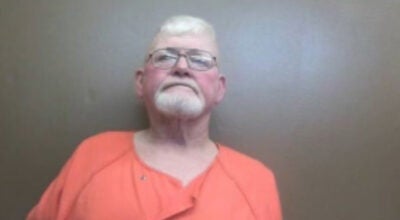Under fire: Gun permit proposal could damage public records laws
Published 12:05 am Sunday, February 3, 2013
NATCHEZ — Records listing Mississippians who have registered for a concealed carry gun permit could soon be under government lock and key.
Currently, the listings are public record, covered by the Mississippi Public Records Act. Any member of the public can view any public record upon request.
House Bill 485, now before the Mississippi Legislature and backed by the National Rifle Association, passed the House 101-18 last week and will move next for more debate in the Senate.
Under the proposed bill, only law enforcement officers would be able to look up the names of those with a state permit to carry a gun.
The bill was filed after its sponsor, Rep. Mark Baker, R-Brandon, said he received requests from constituents who were upset that a newspaper in New York, The Journal News, published the names and addresses of people who have concealed weapons permits after the shooting in Newtown, Conn.
“I don’t want to make those that are trying to protect themselves and their families susceptible to harm,” Baker told the House in arguing to close the records.
Mississippi Press Association President Jim Prince said he objects to the closing of the records and that the bill is an overreaction to something that isn’t likely to happen in the state.
“If the government is going to maintain records on law abiding citizens, those records should be open for public inspection,” Prince said. “There isn’t a (newspaper) publisher I know in Mississippi who has any intention of publishing those names, but they should be available for inspection if needed.
“The media can abuse things, and it’s because of those abuses that we’ve had these reactions, but we don’t need a knee jerk reaction to something a liberal New York paper did.”
In Louisiana, those records are already closed to public inspection.
Louisiana lawmakers, however, are considering introducing legislation that would create criminal penalties for anyone who publishes the names of concealed carry permit holders. That legislation, sponsored by Rep. Jeff Thompson, R-Bossier City, would be considered in the legislative session that begins in April.
But with applications for concealed weapon permits more then doubling from 2008 to 2012 in Mississippi, Prince and others are hoping for more thorough debates in the Senate.
“I think if cooler heads prevail in the Senate, there is a way to satisfy the concern, which is a legitimate one, that gun owners don’t want their names and address plastered in a newspaper,” Prince said. “I certainly understand where they’re coming from, but at the same time I can’t approve closing records.
“You start heading down a slippery slope when you start closing any kind of public records.”
To close or not to close?
In the last five years, more than 38,000 people have applied for a concealed weapon permit in Mississippi, according to figures from the Department of Public Safety.
Licenses to carry stun guns, concealed pistols or revolvers are issued by the department to people who meet the following qualifications:
Are 21 or older.
Been a resident of Mississippi for more than 12 months; have a valid out-of-state license; be on active military duty; or be a retired law enforcement officer seeking residency in the state.
Do not suffer from a physical infirmity that prevents the safe handling of a handgun.
Do not have any previous drug or alcohol abuse charges.
Are not a convicted felon or fugitive from justice.
Have not been voluntarily or involuntarily committed to a mental institution or mental health treatment facility unless they have a certificate from a psychiatrist licensed in the state saying they have not suffered from disability for at least five years.
Have no violent misdemeanor convictions within the last three years.
Are not prohibited from possessing a firearm under federal law.
All applicants must submit fingerprints, a full-face photograph and pay a fingerprint and license fee.
A background check through the Federal Bureau of Investigation is required for all applicants.
Permits are valid for five years from the date of issuance and must be carried together with a valid identification at all times when carrying the stun gun, concealed pistol or revolver.
No permit is required for people to have guns in their homes, businesses or vehicles and no permit is required for antique or collectible weapons.
The permit gives permission for someone to carry a pistol or revolver concealed in a bag or under a jacket in other places, such as public sidewalks.
Another available certification also requires an eight-hour gun safety course in order for handgun owners to be permitted to carry their weapon into public buildings, churches and malls.
The Department of Public Safety maintains an automated listing of all permit holders that is available upon request to all law enforcement agencies through the Mississippi Crime Information Center.
The records are exempt from public access for a period of 45 days from the date of issuance. Currently, once that time period has lapsed, the records are available upon request pursuant to the Mississippi Public Records Act of 1983.
House Bill 485 states that the name, home address, telephone number or any other private information of a person with a concealed carry permit would be exempt from the public records act.
Gene Newman, NRA field representative for Mississippi and Alabama, said documents on law-abiding citizens obtained through a lawful process don’t belong printed in any newspaper or other media outlet.
“The NRA is opposed to listing the names and addresses of holders of lawfully obtained legal permits to have concealed weapons,” Newman said. “Why would you want or need to list something that was lawfully obtained?
“It’s not a crime, so why would you publish that?”
Prince, who is the editor and publisher of the Madison County Journal, said that information would be valuable to a newspaper in a particular news situation, but not to publish for no reason.
“Say some guy shoots up a school and had a concealed carry permit, that would be a good question that we couldn’t get answered,” Prince said. “There’s an expectation of privacy that citizens deserve, and I don’t think any newspaper in the state would take all the permits and print them for no reason.”
The issue, Prince said, deals more with newspapers and media’s role as government watchdogs or the “fourth estate.”
“It’s more about being a check on the government because thinking about the government keeping secret records on gun owners is a little scary to me,” Prince said. “You’re opening up a can of worms for the government to abuse that power.”
“Our role as the press is to keep a check on government, and if we can’t go down there and inspect those records then we can’t fulfill that role.”
Sen. Kelvin Butler, D-Magnolia, who represents a portion of Adams County, said he has been receiving e-mails and calls from constituents about the bill and would be reviewing it in more detail before the Senate debates.
At first glance, however, Butler said the bill seems to take a step backward in the effort to create a more transparent government.
“We’re always talking about more transparency and that everybody needs to know what’s going on, so I don’t see how this would help us move forward with that,” Butler said. “Once you start something like that it kind of mushrooms out, and then it’ll be more and more records being closed.
“There have been people who’ve worked hard to fight for those records to be available, and now we’re saying we need to close them back?”
An ideal compromise to the bill, Prince said, would involve keeping the records available, but placing a penalty on those who publish them without proper justification.
“It could state by law that they are open to inspection, but it is unlawful to specifically identify anyone in those records or publish that with a fine of $10,000 and five years in prison,” Prince said detailing a hypothetical revision to the bill. “That would stop some random blogger from publishing it, but still allow newspapers and other media the ability to inspect the records if needed.
“Those kinds of things at least need to be discussed because this is a democracy and the people are owed a discussion.”






